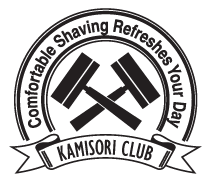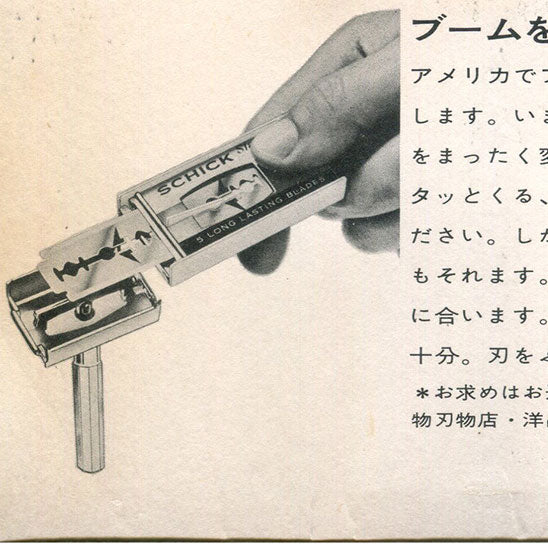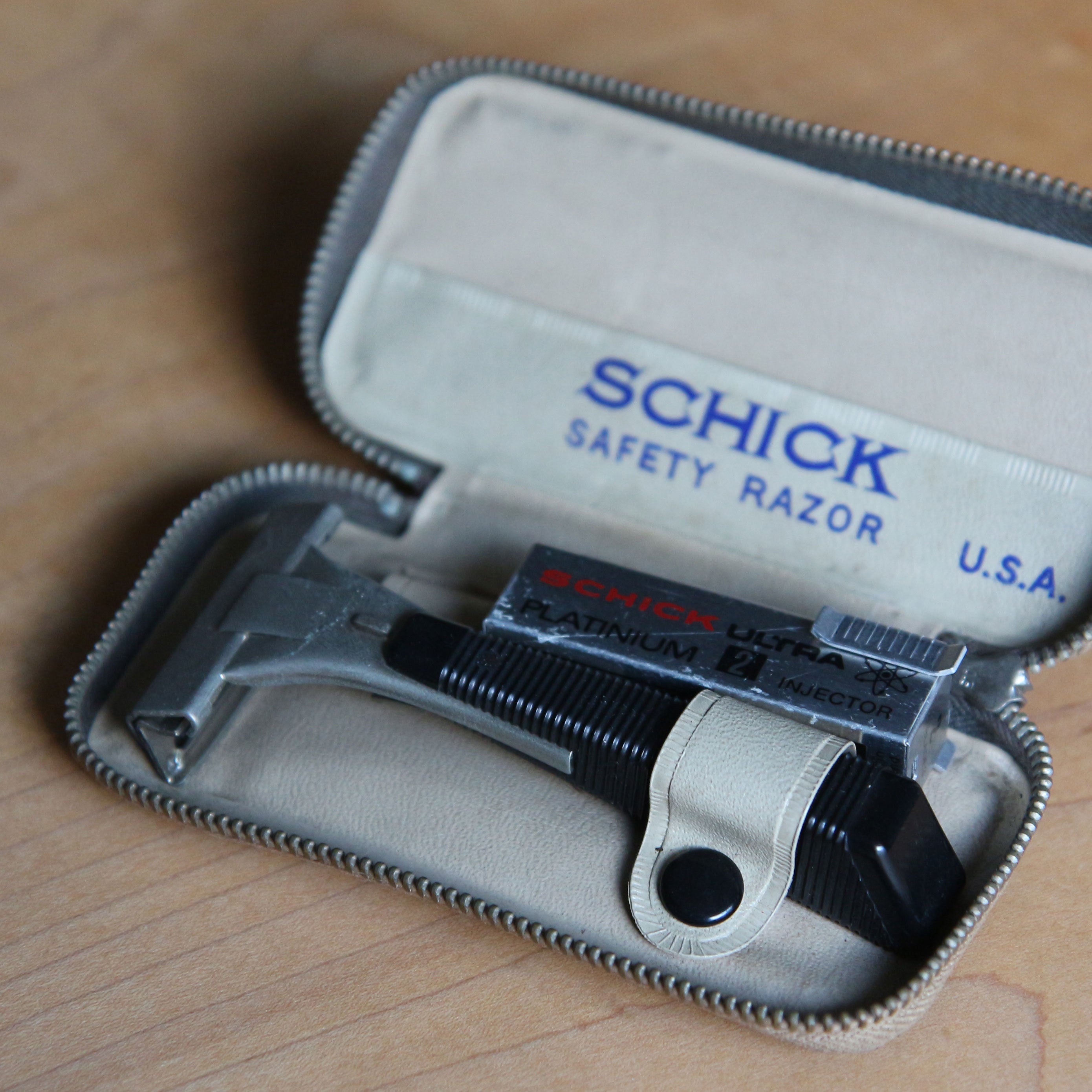
Chic Marched the Japanese Razor Market with Strategy - The History of Japan's Wet Shaving Market
We will look back on Japan's wet Reiwa and culture, from the post-war to the end of the war, with Yasuki Takeuchi, CEO of the Razor Club.
Chic marched the Japanese market with his strategy.
Kinzo Takeuchi, the predecessor of the razor club, said in an interview on the day that "if the product is good, the advertisement is good, and the sales network is good, it will sell." The key to success is how to know it. After the war, "Chic", which started from zero, won the No. 1 razor market in Japan, and the idea of a simple marketing strategy that leads to the present and the future is alive.

Kinzo, who missed the opportunity due to the war and had given up selling single-edged razors suitable for Japanese people, met the "injector" of "Chic" with a large poster on the razor counter for foreigners in department stores. The visual of a little girl shaving her dad's beard was full of love and at the same time appealing to the safety of the injector. "Injector was an epoch-making product not only in terms of its unique operation and sharpness, but also in that it can be safely replaced without touching the blade. I remember experiencing this for the first time in a local barber's room while studying in the United States. (Koki Takeuchi's talk( abbreviated below) Kinzo, who had an intuition that he could go to this, would send a sample to Eversha sharp chic.
However, at that time, Sanho Shoji (the predecessor of the razor club) was a small company of about 20 people. After the war, there were foreign currency regulations, and it was necessary to trade in dollars when importing. In other words, if you are not a company that has dollars in your own transactions, it was difficult to buy from overseas. For this reason, Sanho Corporation will start handling the products as a sales point in Japan by requesting an import agent from Hattori Clock Store (now Seiko Holdings), which has a proven track record of trading dollars in watches.
"At the time of import liberalization, the domestic razor market had a market share of more than 80% of feathers, and even if we worked hard in the same place, we couldn't manage it. Avoid fighting on the same route and consider cognitive methods and images for the establishment of the "chic" brand. With the majority of double-edged razors, the first challenge was to create an opportunity for people to use single-edged razors anyway.
"At that time, imported from overseas had a very good image as 'foreign goods' and was very popular. So, first of all, I decided to sell it as a luxury gift at a department store. If it's a gift, I'll try it once. While double-edged razors are the mainstream, single-edged injectors are displayed in the glass case of department stores for 600 yen (prices at that time were about one-fourth of what they are today). A large number of orders of the name put in the holder also gathered, and it became a popular gift. First of all, by spreading the holder, it resulted in contributing to the sale of replacement blades in the future.
However, the era did not last long, and the center of consumption eventually shifted from department stores to mass retailers. "As soon as we read ahead of the arrival of the era of mass retailers, we shifted to a nationwide sales system for mass retailers. I also checked the sales floor and walked around the country looking at supermarkets to propose new sales. I'm glad that I was able to take advantage of my experience in the U.S., where I studied abroad when I was a student. 」
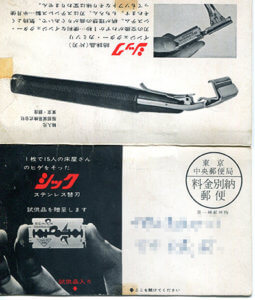
The razors, which were sold face-to-face in the showcase in the case, will be changed to blister packs with mounts and transparent plastic to correspond to self-service stores that carry them to the cash register for their own hands. "When we started trading directly, it was just when Super II was released, and I still vividly remember how the new packages were in stores. By entering the supermarket as soon as possible, the image of "sick" "injector" and "stainless steel replacement blade" that had been focusing at the same time became established at once, and the market expansion of "Gillette" and "Feather" or Lion and Kao was shaken off. One of the reasons for the win was that we put a lot of effort into TV commercials and concentrated on advertising. There will be many people who remember the impressive commercial of "Sick".
In addition to thoroughly expanding awareness of general consumers, Sanho Corporation has expanded its sales bases to major cities throughout Japan, and has vigorously expanded its sales activities in the region. Before long, razors entered the "double-edged" era, and the Gillette was a two-blade cartridge "GII." to revive the Japanese market. However, "SI." of "Chic" succeeded in impressing the consumer strongly by leading the nationwide sale in the store though the product was airlifted by the manufacturer (Warner Lambert) side's willingness, and it was delayed in the press announcement, and it won the two-blade confrontation.
"Gillette's capital and product development capabilities are better. We also have patents, so we are technically a leading company. However, we were connected by a strong pipe by a manufacturer (Warner Lambert), an import agent (Seiko Hattori), and a distributor (Sanho Shoji). Peter Oliver, general manager of Evershatsick's Far East, who owned "Chic" at the time of the start of importation, said, "We leave the sale of 'Chic' in Japan to the Japanese," and that didn't change since Ever sharpsick merged with Warner Lambert.
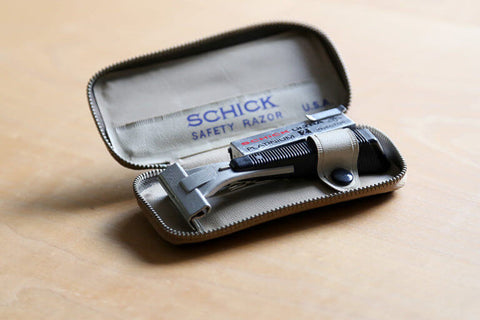
Kinzo Takeuchi had a similar belief. "I have a lot of respect for my father, who has thoroughly put into practice the Japanese way of thinking that Japanese people do. And there is no doubt that it was a factor in success. 」。 The three companies held regular meetings to take measures with an overwhelming sense of party to spread "sick" products.
Even now, companies are forced to choose "global" or "local" as they aim for the global market. More than 50 years ago, "Gillette" tried to integrate into a global strategy against the Japanese razor market, and "Sick" tried to respect and adapt the way unique to Japan. It can be said that the match of the direction and the sense of unity with Sanho Shoji with a strong passion to make "Chic" the best in Japan by riding the momentum of the high growth period was a big cause of "Chic".
